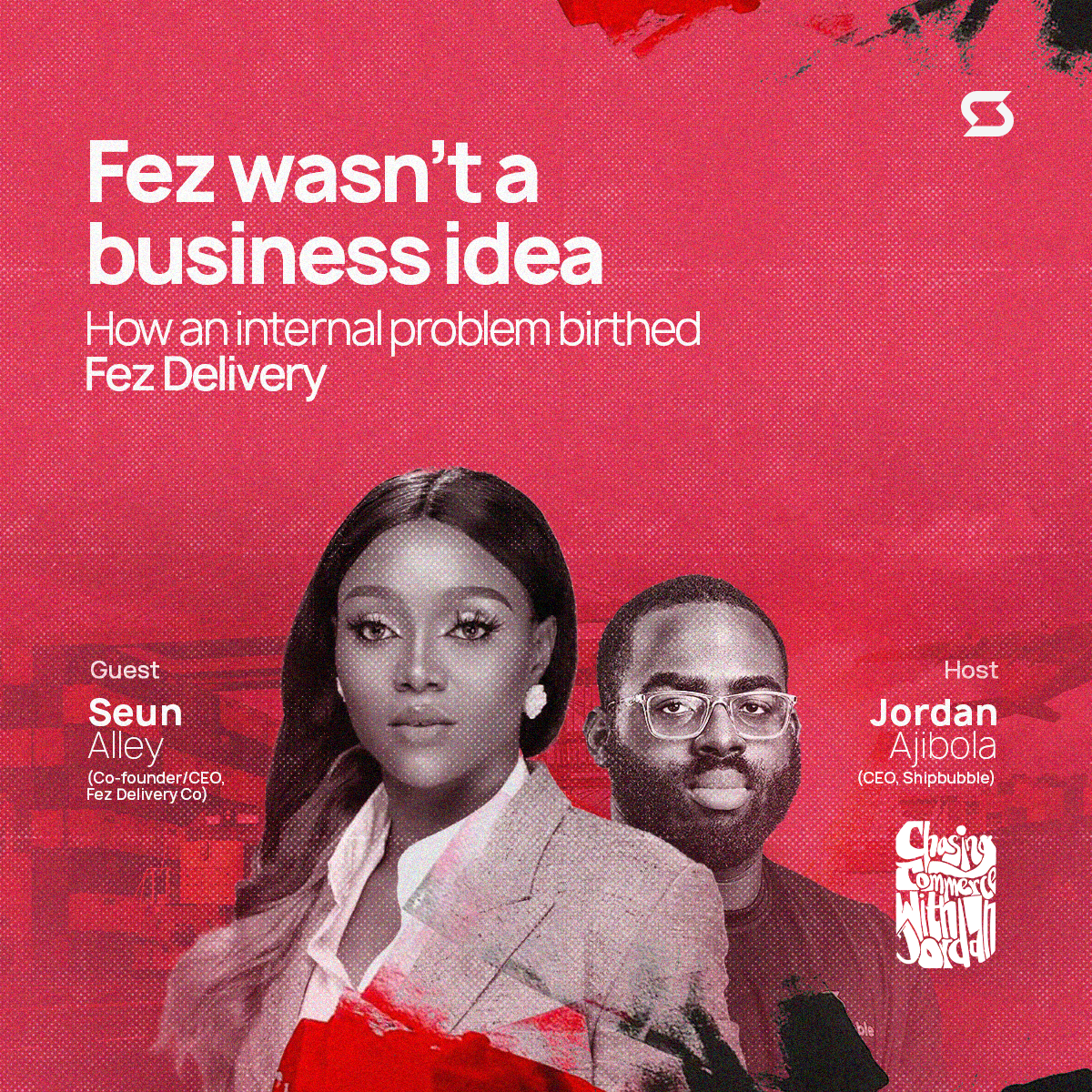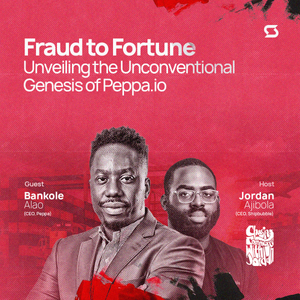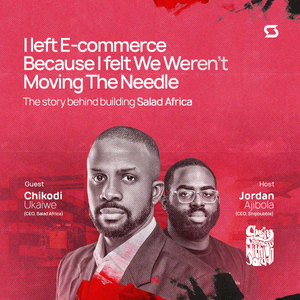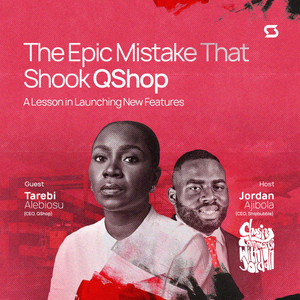This episode of "Chasing Commerce with Jordan" tells the remarkable tale of Seun Alley, a woman who has had a lasting impact in a variety of fields and who is currently spearheading Fez Delivery's growth and expansion.
Jordan Ajibola: Hi Seun, it’s nice to have you on. Chasing Commerce with Jordan is a series where we talk to leading voices in the e-commerce sector about their experiences and unique perspectives. Please introduce yourself and how your journey started.
Seun Alley: My name is Seun Alley. I started my career in the banking industry in 2008. I have about 12 years of experience working at First Bank and Fidelity Bank, and I would like to give these two banks credit because those banks laid the foundation for me when it has to do with operations, and we are seeing the effect of that at Fez today.
After the banking sector, I took a break. I needed some time off work. However, I got bored and decided to get back to work, so I joined Opay as Director of Operations and later as Director of Partnerships and Government Relations, which was an exciting time. We launched several verticals, including Oride, Ofood, Owealth, and Obets, with the goal of these verticals being to drive traction to the payment side, and it's impressive to see how that business has grown today. I had a short stint at Moove Africa and also worked at Bloc (formerly TechAdvance) as COO. Now, I work as the CEO and co-founder of Fez Delivery. Fez Delivery is a last-mile logistics company, and what we do is help businesses and individuals move their items from point to point by leveraging technology for skill and efficiency. We launched in 2018 as a side hustle, but in 2020 we decided that this could be bigger than a side hustle.
Since then, it's been a roller coaster. Logistics is not one of the easiest businesses to do, especially in Nigeria. It's been an exciting journey with a lot of learning, and we take it every day. We're just taking it one day at a time. That’s my journey so far.
Jordan Ajibola: Thank you, Seun; that was very extensive. You said Fez was this side hustle from 2018, and then you went live properly in 2020. Was that in any way due to COVID-19?
Seun Alley: Yes, I mean, you are spot on. I forgot to mention that I had a janitorial service company earlier, and it was because we were trying to fix a problem with the janitorial business that we found Fez. We discovered that, at every point in time, our janitors were never at their duty post. They always went on errands for employees of the companies that we served. So I decided with the team to launch an investigation into what the reason was, and I realised that our employees were always on errands, trying to impress the employees of these companies. We also found out that one of the reasons these employees sent our janitors on these errands was because the stores they shopped at didn't have dispatch options.
These details made us launch a dispatch service with two riders; one of them is still with Fez to date. It was not a business idea. We just wanted to tackle that problem and get the complaints to stop. We assured them that we would take full responsibility for items that went missing or damaged. That was how we launched Fez in 2018—just so that it takes care of a closed community of the people of the employees of the organisations that we served with the janitorial side of things.
However, as time went by, we found out it was a service many other companies, especially SMEs, needed. So we began to expand bit by bit to serve our friends and close contacts. Some of these businesses are still with us today.
But with 2020, I think overall, that was the game changer. It was a time when people understood the essence of convenience and embraced our services. We did three times more than what we did the previous year, and that’s because people saw the need.
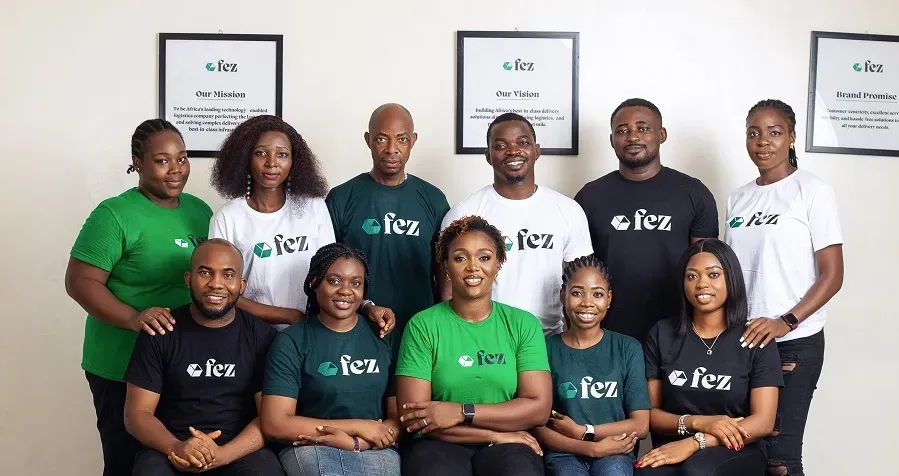
Jordan Ajibola: That's interesting—how the story went from just a janitorial operational problem to a full-fledged logistics company. And again, congratulations on the launch of the Fez safe lockers. Do you want to talk about the introduction of this new business vertical?
Seun Alley: To be honest, when we thought about the safe lockers, it was mostly about us thinking about the businesses we serve. Last year, a lot of things went contrary to what we had planned. There were a lot of dynamics that businesses, including us, did not plan for at the start of 2023. We had a new president with fantastic plans. However, the effect of some of the proclamations during the swearing-in changed quite a few things. Fuel prices surged by 300%, and the cost of running our business went up. Looking at it from the top of your head, you'll think that the cost of delivery will also go up by 300% just so that we still have a business to run and we are not running at a loss.
The cost has to go somewhere. You can reduce your margin as a business and spread what is left to your clients, which is what we did. We managed to keep our rates competitive as well. Even at that, businesses still struggled because people began to overthink their purchases. The cost of the goods themselves had gone up, and now the cost of delivery has as well.
We like to identify as growth partners for businesses, and we like to ensure that the businesses that we serve grow. So we sat down with the team to see how we can reduce the effect of this price increase on businesses in such a way that we present their customers with options that are flexible and give them the power to decide which route they would rather take.
Smart Lockers presents people with the opportunity to either drop off or pick up items from our safe lockers within proximity to their houses as businesses or senders. I mean, our initial plan was to not extend beyond five kilometres for the recipients. It has come with its challenges. We had to launch with just three stations because we also wanted to see what the adoption rate would be. There's a lot of customer education involved in that as well.
But we've gotten a lot of positive feedback since launch, so it's looking good. You're in this business as well, so you know how things can go, but we are very optimistic about the outcome.
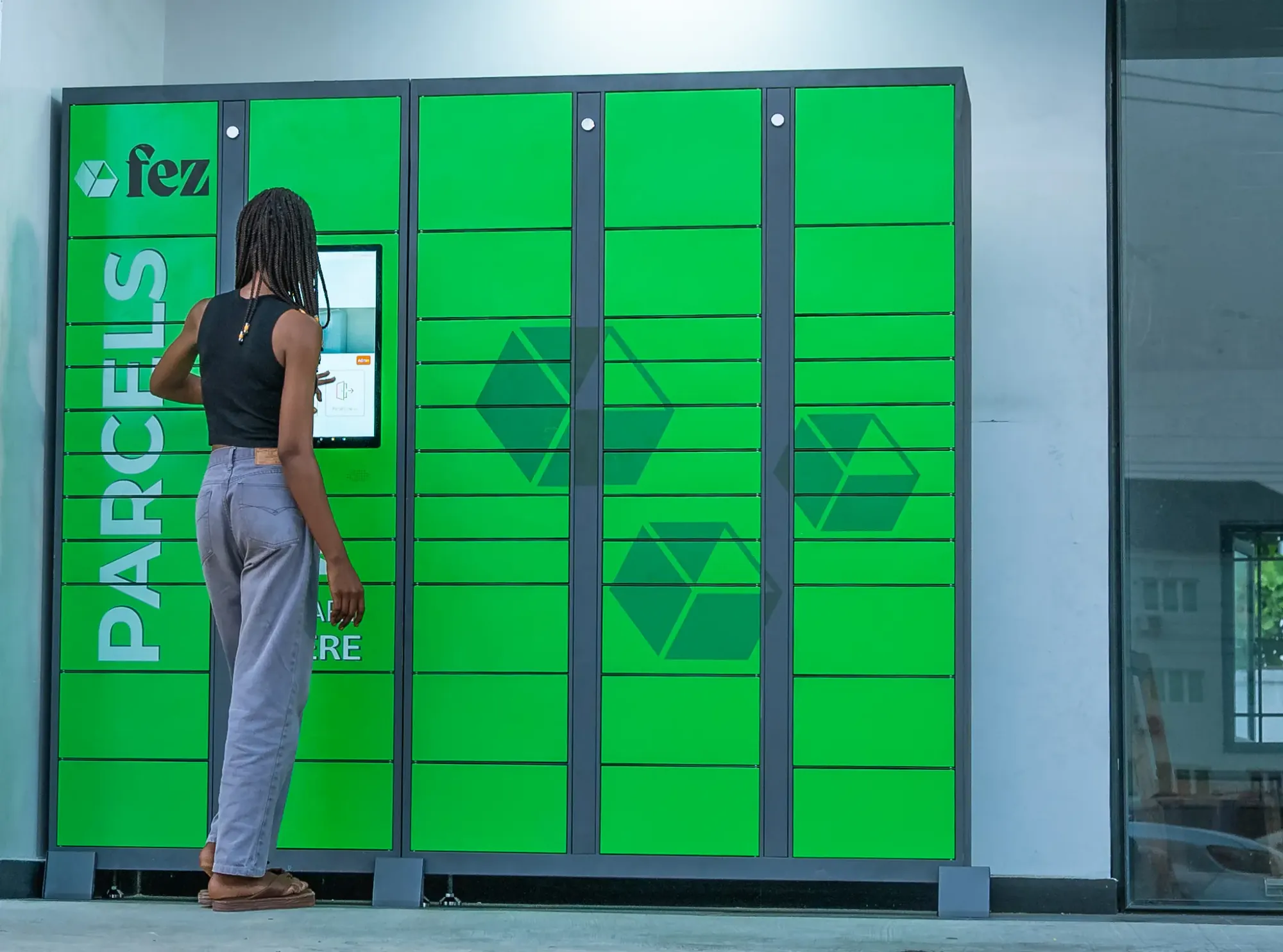
Jordan Ajibola: Thank you for that. I think that in addition to the flexibility for the customers, it also encourages sustainability. When we look at other logistic partners, we notice that your prices are significantly cheaper and your tracking is better as well. What part of your experience would you say contributed to ensuring that it had to be like this?
Seun Alley: It's a larger part of the vision of being the poster child for how logistics should be done in Nigeria and, by extension, Africa. Our goal is to become a powerhouse when logistics is talked about in Africa, but for now, we're starting with Nigeria.
I like to say this based on the interactions that I've had with SMEs in the past, and it is not even a conversation that has ended. Speaking to businesses gives you a completely different perception of logistics companies. They think they have done everything right, but logistics is the killer of their dreams.
Their pain is so palpable on social media, so you can tell that this is a major problem. And if you take a step backwards and look at the number of businesses complaining about logistics, it is massive. SMEs in Nigeria contribute 48% to our GDP. I attended an event in Nairobi last year, and one of the speakers mentioned that the businesses that are going to be around for a very long time are businesses that build products for SMEs.
So if people who contribute almost 50% to the national GDP are asking for a fix in a particular segment, what are we all doing? We should be paying attention to what those problems are and coming together as a team to fix them.
So back to your question, the vision at Fez is to become that indigenous poster child because, again, there's the perception that if it is not foreign, then it cannot be done. But we have all the resources at our disposal to be able to achieve all of this. So when you're looking at those people who have changed the game in the next five years within the logistics industry, we want Fez to be on your lips.
We want to redefine how logistics is done by solving the problems for the businesses that need these services and also creating an infrastructure where other logistics companies can thrive.
Jordan Ajibola: Thank you for that. One thing I'm happy with sharing in terms of value is being seen as a growth partner for e-commerce businesses or SMEs in general. From our experience, logistics partners tend to restrict new technology. How do you ensure that your guys adopt this new technology to ensure that every delivery is done the Fez way?
Seun Alley: This is one of the toughest things that we've had to deal with. And taking it to third-party partners is even taking it too far. Even getting riders within our organisation to do it the right way was difficult. So you have cases of deliveries that have been done as early as 11 a.m., and you look at your dashboard at 2pm and it's still not updated as delivered even though the customer already has their item. The receiver has it and probably didn't even communicate with the sender. So the sender is coming back to us to say they’ve tracked their package, and it is still with the rider. We call the rider who doesn’t pick up, and then we have to call the customer to confirm if the package has been delivered.
What we’ve realised now is that incentives are a big deal. While you expect people to do their jobs, it is important to encourage and motivate them to do them well.
There's still a lot of education that is required, and we are taking it on as a challenge. There's also continuous engagement with the users, the riders, and the 3PL partners, and they come back to us to say they think that the process is cumbersome and can we simplify it? So because we want it to become a way of life for everyone, we try to take the feedback back to the tech team and look at how we can tweak some of the processes in ways that make it easier for them to use the product.
Jordan Ajibola: I think that's very impressive. Compared to a lot of logistics companies that we work with, I’ll say that the updating culture at Fez is much better. A great job on that. Let’s talk about the customers. How do you see building trust in e-commerce?
Seun Alley: So we have two sayings at Fez. One, there is nothing like overcommunication. So the fact that a customer has taken the step to work with us means there's already an element of trust. What you don't want to do as a brand is betray that trust. I mean, we are not even close to 100% yet. One thing that we built the company on is communication.
Number two, we are not going to lie. It is a tough one, but we always try to be upfront. We think that it's a lot easier when you tell the customers the truth and then do everything humanly possible to fix that situation as quickly as possible so that their expectations are managed. We are also trying a lot of education with our customers and riders because there has been a lot of misinterpretation of promises.
Jordan Ajibola: Do you have any stories about how customer feedback shaped the way some of your services are today?
Seun Alley: Yes. Safe lockers is actually one of them. We got a lot of feedback from players in the fintech, SME, and corporate spaces asking us for more options for their clients. So we took it back to what the realities are and if it would be good business for us.
Tracking is also one. We had a session where we called some of our customers into the design stage. They told us what they wanted to see, and we made it happen. Those are the two examples that I'm happy to share with you at this time.
Jordan Ajibola: Are you looking to go into trucks at some point or just parcel delivery?
Seun Alley: Trucks sound very exciting, but for now, we're going to focus on parcels and the last mile side of things because it is still largely untapped; there are a lot of opportunities there, and we haven't even scratched the surface. So we’re still in that zone for now.
Jordan Ajibola: How have collaboration and partnership helped you drive growth so far?
Seun Alley: Within our logistics space, there's also the trust dynamic. But if you look at the larger picture, you realise that there's a lot more you can do when you're open to collaboration. So we really began to explore collaboration a lot more in the last 15 months, and we can attest that it's been a major factor in our growth. We’ve been collaborating with third-party platforms like Shipbubble, and it's been pretty good for us. And that's one area that we want to look at more and more because we see the potential there.
I personally believe that the biggest winners in any ecosystem will be the biggest collaborators.
Jordan Ajibola: Being the person driving Fez must be a crazy task. What would you say has been critical in helping you drive this company?
Seun Alley: I'll say the people that I work with. There is no other explanation. Some days are really daunting, but I have a superhuman CTO who is also my co-founder and I always refer to him as the water to the fire, because when I'm blowing hot, Femi is the one who's super chill.
He is the opposite of me in everything, apart from the fact that we have the same vision. I also have an incredibly solid army of people, and we have people who have been with us for four years, and they do the bulk of the job. The people we have at Fez keep me going, and they make it look really easy.
Jordan Ajibola: What are your ambitions and goals for the next 5-10 years in the e-commerce logistics space?
Seun Alley: I always struggle with this question. The vision for now is to build an infrastructure that just helps businesses grow. I don't think that will change in the next 10 years. Maybe the how is going to change, but at the centre of that vision is going to be the ambition to ensure that businesses come back and say that the only reason why I'm a unicorn today is because Fez stuck with me.
Beyond even the businesses, having employees say, ‘I've been in this company for 5-10 years and we are still here because we are excited to be changing the logistics game.’
The goal is to ensure that more businesses are impacted in Nigeria, Africa, and all over the world.
Jordan Ajibola: It sounds very exciting. I think a lot of people will read this and come back to say that that was an amazing interview. If you had any advice for people in the logistics or e-commerce space, what would that be?
Seun Alley: My advice will be that there has to be a reason you started, and that reason has to be bigger than you because the road is not smooth. There are going to be all sorts of challenges, enough to break you and make you quit. So the only thing that then keeps you going is the reason you started in the first place, so that reason has to be bigger than you.
It cannot be just about making money. It has to be impact-based so that when, for any reason, those challenges come, if the reason why you started is much bigger than you, just look beyond what the problem is and just keep going.
Jordan Ajibola: Thank you so much, Seun.
Seun Alley: Thank you for having me.
Thank you for joining us in this insightful conversation! If you found this discussion engaging and informative, don't forget to connect with us on social media to stay updated on more exciting interviews, industry insights, and valuable content. Feel free to subscribe to our monthly newsletter and join our community of Bubblin’ Entrepreneurs. Your feedback and engagement are highly appreciated!

